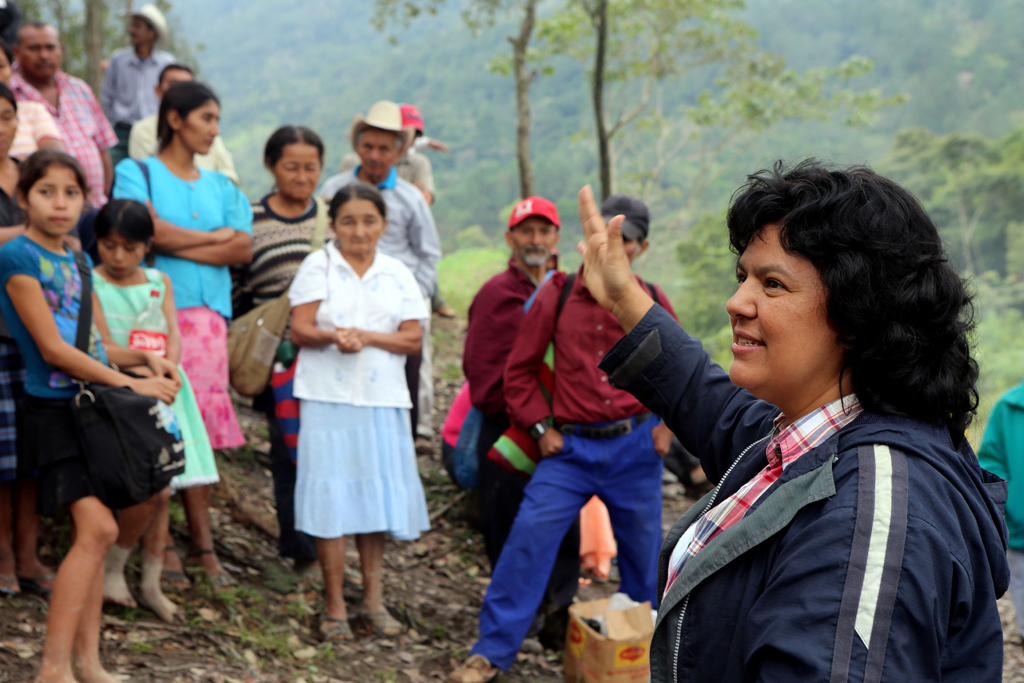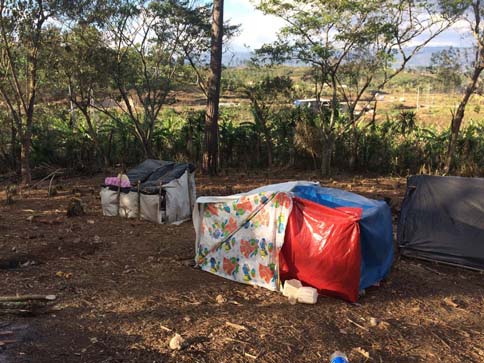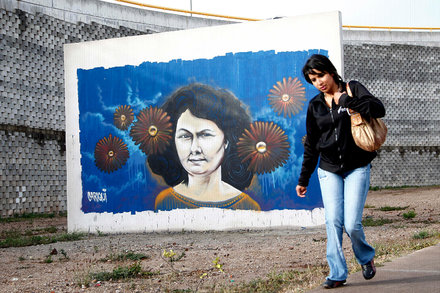Dada la situación de derechos humanos en Honduras, CRLN proporcionará a sus miembros una actualización mensual de los problemas de derechos humanos que afligen al país.

- Las autoridades hondureñas
arrestaron a otro sospechoso del asesinato de Berta Caceres, Henry Javier Hernández Rodríguez, ex miembro del ejército hondureño,
en Tamaulipas, México. La familia de Berta exige el arresto de los que planificaron el asesinato. Sin embargo, las autoridades hondureñas no parecen estar haciendo ningún esfuerzo para enjuiciar a los verdaderos autores intelectuales del asesinato de Berta. - Gustavo Castro, quien sobrevivió a un intento de asesinato cuando Berta Cáceres fue asesinada,
presentó una acusación formal contra el Estado hondureño por violaciones a sus derechos humanos.
Global Witness publicó un informe que denuncia, tras una investigación de dos años,
que 120 activistas ambientales han muerto desde el 2010 en Honduras y que en el centro del conflicto están las élites ricas y poderosas, entre ellas miembros de la clase política. Global Witness también denuncia que los Estados Unidos continua proporcionando ayuda de seguridad a Honduras a pesar de las continuas violaciones de derechos humanos cometidas por el estado hondureño . Sólo esta semana, los Estados Unidos dio los primeros fondos de la Alianza para la Prosperidad ($ 125 millones) al gobierno hondureño.- El presidente Juan Orlando Hernández está buscando una reforma al Código Penal y la introducción de nueva legislación que proporcionaría más poder a las fuerzas de seguridad del país. Además, con esta legislación, las fuerzas policiales, militares y de seguridad que matan o lesionan a los/las civiles en “defensa” estarían exentos de la justicia.
CARITAS Honduras
dijo que esta legislación llevaría al país de regreso a los años 80 cuando la oposición y los medios de comunicación fueron perseguidos y las prácticas de desapariciones forzadas ocurrieron regularmente.
Amnistía Internacional critico las reformas propuestas al Código Penal.
- Miriam Miranda y otros miembros del grupo cultural garífuna afro-hondureño OFRANEH fueron hostigados y amenazados por la Policía hondureña a principios de enero. La policía quería detener ilegalmente a Miranda y a otros tres defensores de derechos humanos, durante un puesto de control en La Ceiba. Miriam tiene medidas de protección de la Comisión Interamericana de Derechos Humanos (CIDH).
- El periodista Igor Padilla, fue asesinado en la parte norte de Honduras. Honduras es uno de los países más peligrosos y mortales del mundo para ser periodista. Padilla se convirtió en el 63º trabajador de los medios de comunicación asesinado desde el 2003. 50 de los 63 asesinatos ocurrieron desde el 2009, después del golpe de Estado, y 24 solo en el 2014 y 2015.
- OFRANEH está luchando contra Indura Hilton, que quiere construir centros turísticos en sus tierras ancestrales en el norte de Honduras, y denuncia el papel de la Procuraduría General en otorgar acceso a esa tierra a Indura Hilton
- Honduras celebró el Día Nacional de la Mujer el pasado 25 de enero, y las defensoras y organizaciones locales de derechos de las mujeres protestaron contra la continua violencia y discriminación contra las mujeres en el país.
- El presidente Hernández está buscando activamente una reelección ilegal, prohibida por la Constitución hondureña, y está hostigando a la oposición. En la elección anterior, el Partido Nacional robó fondos del sistema de la Seguridad Social, dejando a los/las enfermos/as y las personas con pocos recursos económicos sin medicinas y tratamientos, para financiar su campaña política.












